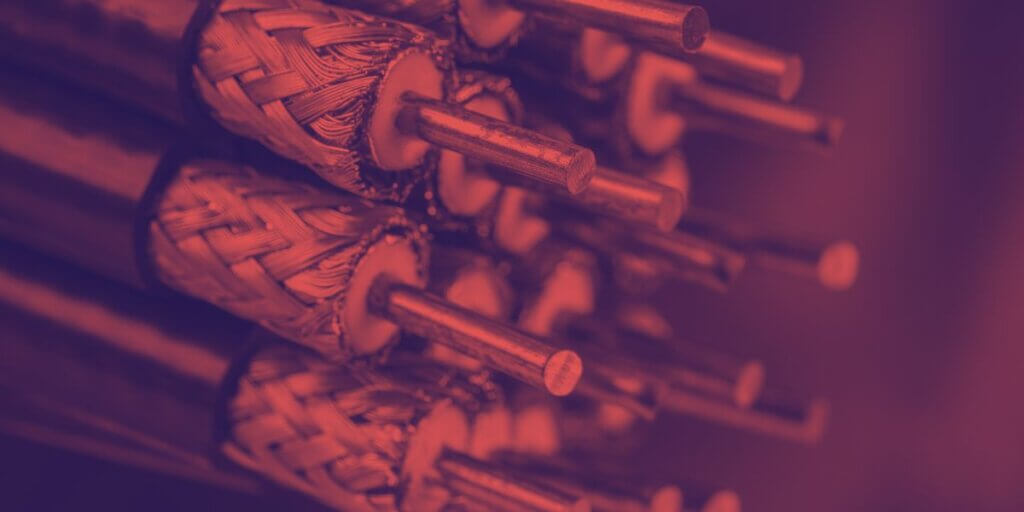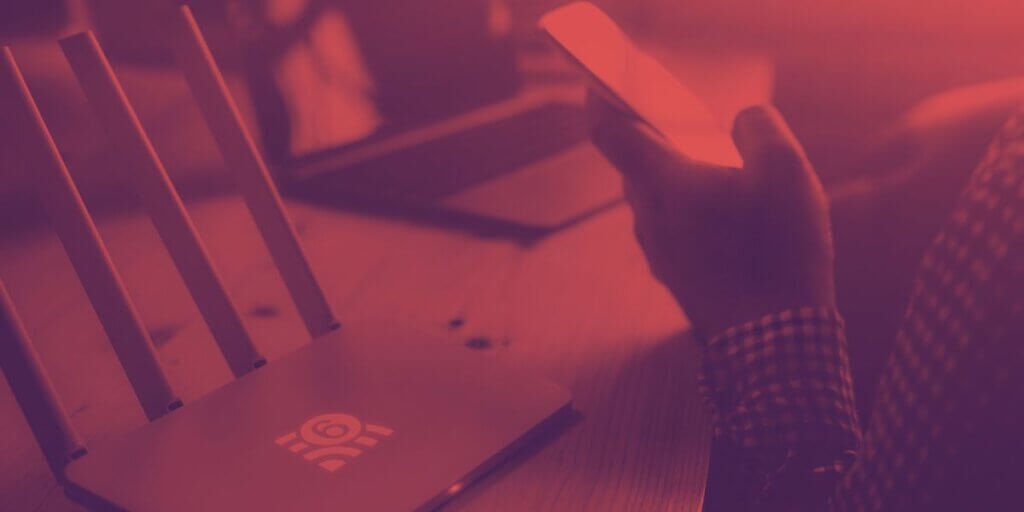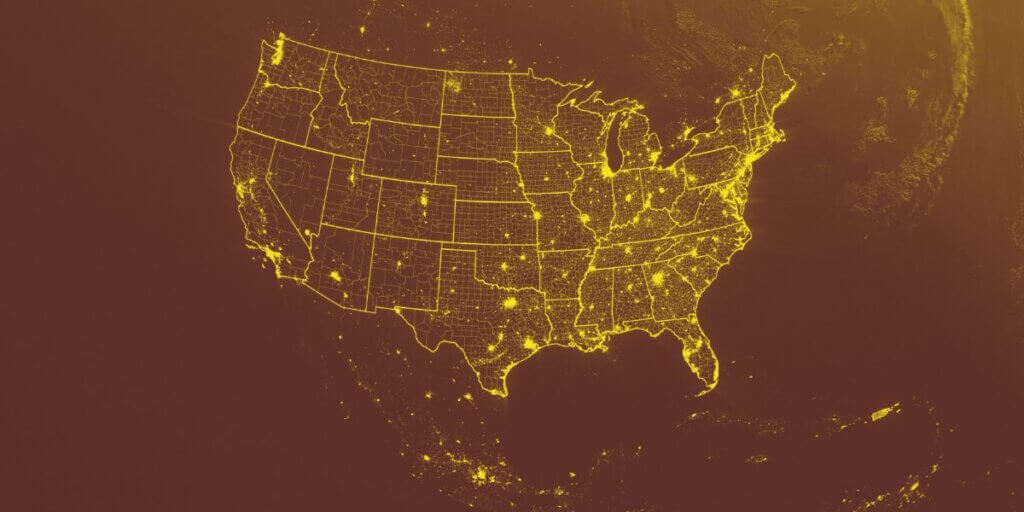Lower your internet bill
61% of people overpay for their internet.
Are you one of them?
Unlock exclusive offers in your area!
Call now
[tel]Enter zip code
1 Star is Poor & 5 Stars is Excellent.
* Required

Written by Rosslyn Elliott - Pub. Sep 17, 2024 / Updated Sep 30, 2024
Table of Contents
Are you happy with your Internet service?

About the author
You’ve probably heard about fiber internet. Who hasn’t? For years now, fiber has been the golden child of internet service. Internet providers, tech gurus, and everyday users all think fiber is top-notch.
Still, many American households don’t get it. According to a study commissioned by the Fiber Broadband Association, just over 50% of American households had access to a fiber connection at the end of 2023 [1].
Even if you don’t have the fiber option yet, it may be on the way! Thanks to federal broadband initiatives like BEAD, fiber infrastructure is spreading to more areas in the United States [2].
So, is it all just hype, or is there a good reason to choose fiber over other internet types?
The advantages of fiber internet are clear and significant – it’s not just hype. Read on to find out why fiber internet can make a difference in your internet performance.
Fiber internet, short for fiber-optic internet, is a broadband connection that uses thin glass or plastic fibers to transmit data using pulses of light [3]. This cutting-edge technology means that data can move much faster over longer distances than it can through traditional copper wire connections.
Cable internet can’t currently match the speeds of fiber-optic technology.
Here’s why:
Cable internet is still very widespread and popular, but its current power simply can’t keep up with the lightning-fast speeds and reliability of fiber.
It’s true that most cable networks are now built mostly with fiber, with just a short length of copper wire running the last mile to your home. This technology (known as hybrid fiber-coaxial) makes cable internet much faster than it used to be. But a 100% fiber network with no copper at all makes a big difference.

Cable can’t match fiber’s upload speeds
Fiber is faster than any other internet technology, but there are ten more advantages of fiber you should know about when you make your internet choice.
Fiber internet is all about speed. With fiber, you can:
Fiber’s superior speed can greatly reduce wait times for large downloads, which can make your online activities easier.
Here’s a caveat, though. Cable internet speeds can now go up to gigabit of download speed too. And gigabit speed is mind-blowingly fast, whether it’s cable or fiber.
The difference is that fiber’s upload speeds are still much faster than cable’s. So, if you are uploading lots of video, you will get top performance out of a fiber connection.
Fiber internet is much more reliable than traditional connections for two major reasons:
This means fewer outages and a more stable connection for your home.
Fiber internet offers far more bandwidth than traditional broadband. This means:
With fiber internet, you will never have to put up with buffering again! Your HD streaming will be seamless because fiber internet gives you the speed and bandwidth you need.

Smooth 4K streaming
Gamers benefit even more than most other users from a fiber connection. Fiber internet will give you these benefits:
For remote workers, fiber internet is a game-changer that can give you total confidence for your digital workday [6].
Investing in fiber internet means you’re prepared for the future:
Fiber-optic connections are more secure than traditional copper cable systems.
Fiber internet is more environmentally friendly, especially when ISPs take care during installation to reduce environmental impact [7].

Fiber can be eco-friendly
While initial installation costs might be higher, fiber internet can be more cost-effective over time.
Fiber internet is ideal if you want to fully network your home with all the latest high-tech gadgets:
When you start looking up facts about fiber internet, you’re going to run into an alphabet soup of abbreviations and acronyms. Don’t let it faze you: the basics are actually easy to understand. Here’s a quick rundown of the few must-know terms you’ll need to choose the right fiber plan.
The most fundamental and common of all the letter jumbles that describe fiber, these two abbreviations stand for “megabits per second” and “gigabits per second.”
Mbps and Gbps measure how fast data can travel back and forth through your internet connection to the web.
200 Mbps is very fast internet. 1 Gigabit per second is lightning-fast internet. Most households don’t yet need a full gigabit speed internet plan, but the future may bring technologies that require it.

FTTH is 100% fiber
In your search for internet options, it’s important to be able to tell when “fiber internet” is 100% fiber. Here are a few more letter clusters that will tell you exactly what you need to know.
Fiber internet does not use a modem the way cable internet does. With fiber internet, you’ll use an Optical Network Terminal (ONT) instead of a traditional modem.
The ONT is a crucial component of your fiber internet setup and will usually be installed by your internet provider.
To make the most of your fiber internet, you need a router that can keep up. Your internet provider may offer you the free use of a fast router.
Sometimes, though, ISPs charge monthly router rental fees that add up quickly. If you want to buy your own instead, look for these features:
Investing in a high-quality router ensures that you’re not bottlenecking your fiber connection in your home network.

Use a fast router
Many advice websites will imply that fiber is more expensive than cable. Actually, first-tier fiber internet plans (often 200 Mbps to 300 Mbps) are often cheaper than similar cable internet plans.
Factors that will affect your cost include:
Many fiber providers offer competitive promotional rates, making it even easier to make the switch to fiber.
Fiber internet will be especially good for you if:
While fiber isn’t available everywhere yet, fiber coverage is expanding rapidly as demand grows [9].
It’s a good sign when the greatest drawback of an internet technology is that there isn’t enough of it.

Fiber infrastructure is expanding
Fiber internet is more than just a faster connection—it’s a gateway to a more connected, efficient, and enjoyable online experience. As digital technology keeps advancing like a runaway train, fiber internet is your best choice to keep up.
By choosing fiber internet, you’re not just upgrading your internet—you’re investing in your home’s digital future.
Explore the fiber options available in your area by entering your zip code. We’ll give you detailed summaries of providers, plans and pricing to help you compare your best internet options.
Fiber internet connections use an Optical Network Terminal, or ONT. An ONT is different from a cable or DSL modem because an ONT converts light signals to digital signals, while a modem converts analog electrical signals to digital signals.
No, in fact, fiber internet is often cheaper than other internet technologies, especially for lower-speed tiers from 100-300 Mbps.
No, fiber internet and cable internet use the same kinds of router. You just need to make sure your router is fast enough to be compatible with the speeds fiber can bring you.
Fiber internet is faster, more reliable, and lower in latency than other internet services. Cable internet still has much slower upload speeds, though cable’s upload speeds will improve dramatically with the implementation of the new cable protocol called DOCSIS 4.0.
Fiber internet availability can vary from neighborhood to neighborhood. Fortunately, we have that information for you! Enter your zip code for a full list of internet providers in your area and detailed information about plans and pricing.
[1] FiberBroadband.org. “Fiber passes over 50% of U.S. Households."
[3] NYU.edu. “Fiber Optic Cables for Information Exchange."
[4] National Institute of Standards and Technology. “Electromagnetic Interference."
[5] Norton.com. “How to Lower Ping."
[6] Forbes.com. “Work Migration: The Rise of Remote Working and You."
[7] FierceNetwork.com. “Sure, Fiber Networks Are Greener – What About Building Them?"
[8] Wikipedia.org. “Fiber to the X."
[9] LightReading.com. “The Buildout: New Year, New Fiber Networks."

About the author
Congratulations, you qualify for deals on internet plans.
Speak with our specialists to access all local discounts and limited time offers in your area.
[tel]61% of people overpay for their internet.
Are you one of them?
Unlock exclusive offers in your area!
Call now
[tel]Enter zip code